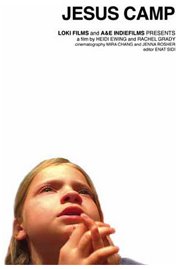I know there's a bit of confusion among American Muslims as to when Ramadhan starts. Here in Singapore, because the weather is often overcast, relying upon moon sightings to determine the start and end of Islamic months is not really feasible. As a result, MUIS (the Islamic Religious Council of Singapore), uses the method of counting days. (I believe the other countries in this area (Indonesia, Malaysia, etc.) follow the same method.) So, to let my American brothers and sisters in Islam know, we will start fasting on Sunday, the 24th. Ramadhan will be for 30 days this year and ends, insha'allah, on Monday, October 23rd. Obviously, Eid will be on Tuesday, October 24th. At this time, Singapore is 12 hours ahead of the East Coast (i.e., it's now about 3:30 p.m. here, Friday afternoon, which makes it 3:30 a.m., very early Friday morning back home), so adjust accordingly.
 Singapore Slingers
Singapore SlingersSingapore has joined the Australian National Basketball League, winning their first game in the team's history by beating the Adelaide 36ers, 98 to 91. I happened to catch about the last minute of the game on TV last night.
Singapore is the first Asian city/country to join the NBL and, insha'allah, hopefully won't be the last. A couple years ago, there was an episode of a local TV show that asked why Singapore didn't have a sporting culture. I had responded to that question by writing a letter to the editor of the Straits Times, although it was never published.
Singapore does have a small sporting culture, but you'd never know it by reading the newspapers. In S'pore, there are two main English language dailies, The Straits Times and The New Paper. The former is your typical, serious paper, similar in size and tone to any major American newspaper (e.g., Phoenix's The Arizona Republic); The New Paper is more of a gossipy tabloid. Of the two, The New Paper has the larger sports section, but focuses almost exclusively on European soccer, F1, and horse racing (there's a local race track and gambling is popular here). The Straits Times' sports section is 1/3 to 1/2 the size of The New Paper's, and covers mostly European soccer. Neither paper devotes any significant effort to covering local sports. The S League (the local soccer league) gets what little ink there is for local coverage; in the past few months, the Straits Times has only made a tiny effort at covering sports at the secondary school level (something that would get tons of ink back home).
Anyway, as a person who enjoys watching, participating in, and reading about sports, Singapore is very much a backwater compared to the US or even Korea. One of the ideas that I proposed in my Letter to the Editor was the creation of a basketball league wherein there would be a team from each of the major cities in SE Asia (somewhat similar to the way SE Asian countries send a national team every other year to compete in the Tiger Cup, a regional and popular soccer tournament). Perhaps in time, insha'allah, the NBL could continue its northward expansion to include other Asian cities in the league (KL, Manila?).
So, I've got a new team to watch and cheer for, although the name...ugh. The colors are OK (red, white and gold), the logo's OK (see above), but the name...dumb.



